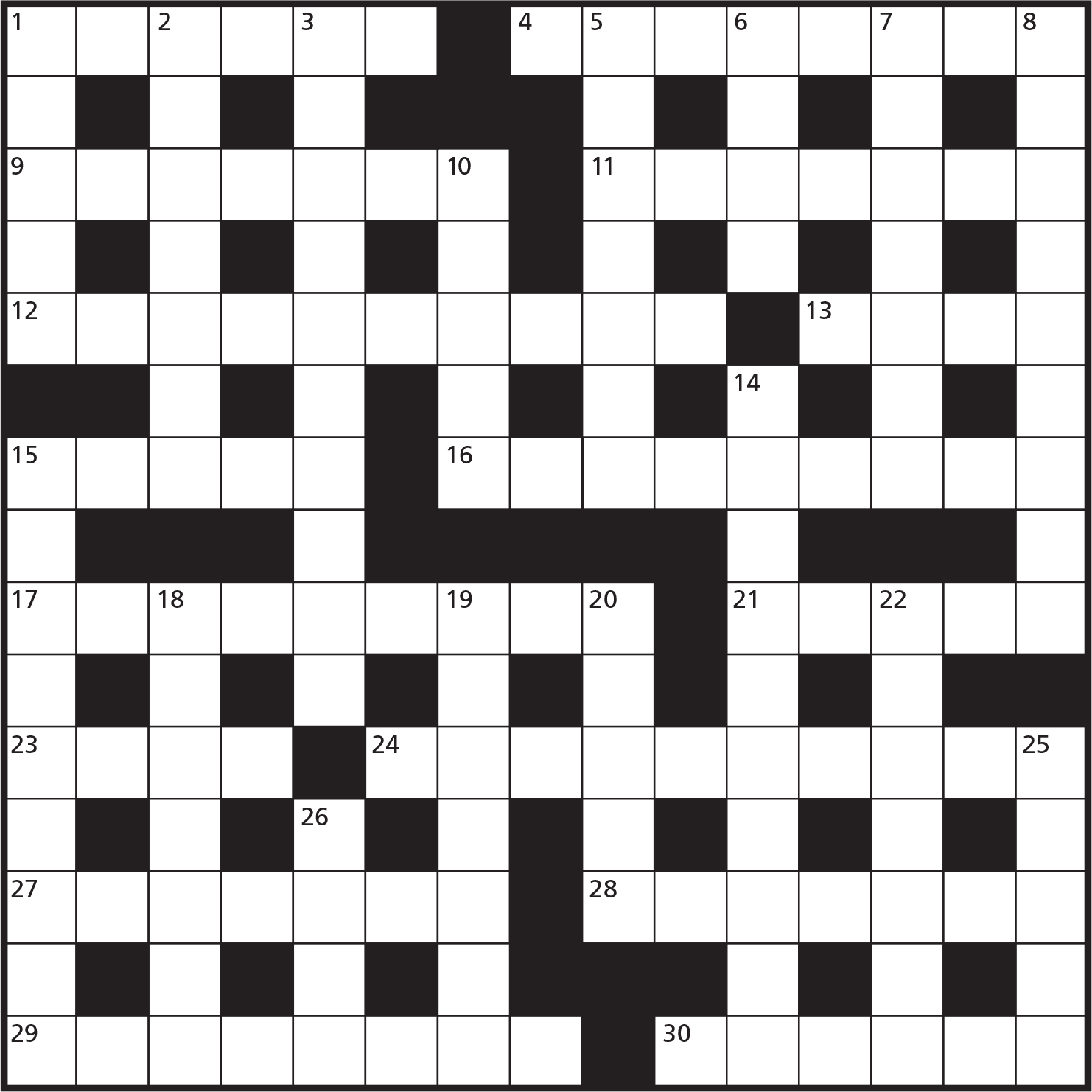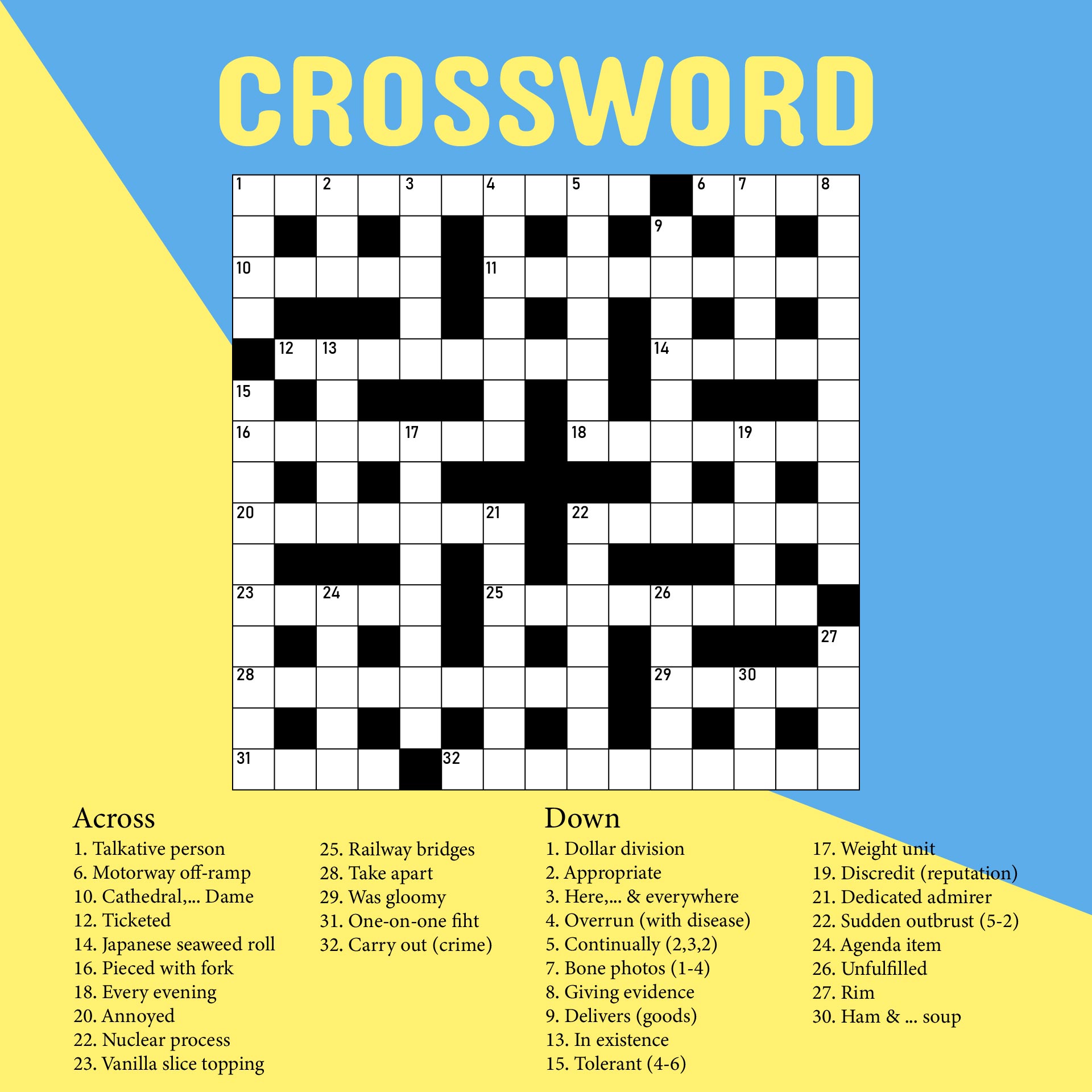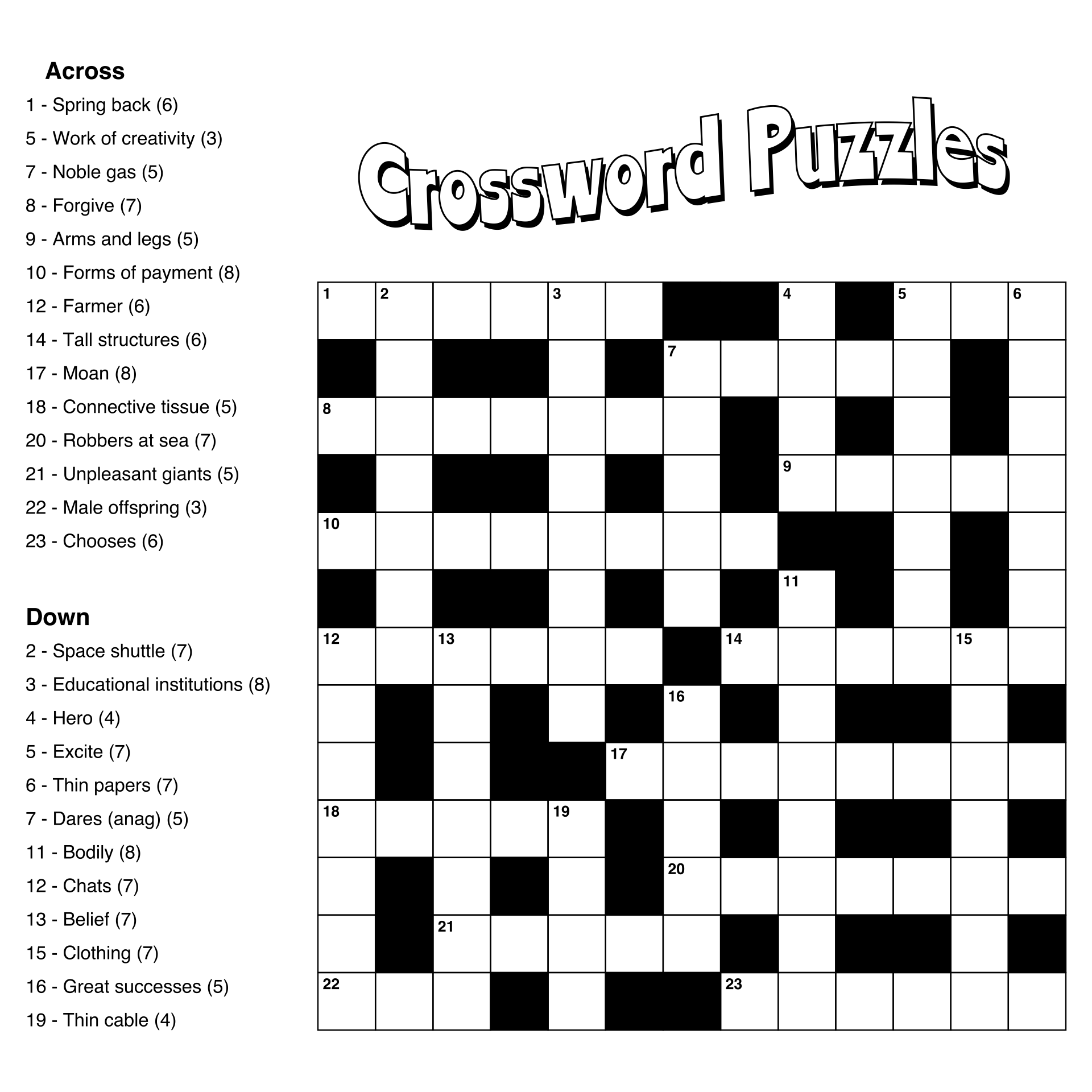Is the responsibility of crossword – In the enigmatic realm of crossword puzzles, the concept of responsibility reigns supreme. It’s not merely about solving the clues; it’s about upholding the integrity of the game and fostering a spirit of camaraderie within the crossword community.
Crossword responsibility encompasses a myriad of aspects, from respecting the intentions of the puzzle creator to adhering to fair play principles. By embracing these ethical guidelines, we elevate the crossword experience for ourselves and others, transforming it from a solitary pursuit to a shared intellectual adventure.
Definition and Explanation of Crossword Responsibility
In the realm of crossword solving, the concept of crossword responsibility holds immense significance, guiding solvers towards ethical and fair practices. It encompasses a set of principles that ensure a harmonious and enjoyable experience for all participants.
Responsible crossword behavior entails respecting the integrity of the puzzle and adhering to established etiquette. It involves avoiding unfair tactics such as using outside resources or collaborating with others to solve clues. Instead, solvers are encouraged to rely on their own knowledge and skills, engaging in the challenge with a spirit of sportsmanship.
Benefits of Responsible Crossword Behavior
Embracing crossword responsibility brings forth numerous benefits for both individual solvers and the crossword community as a whole:
- Enhanced Satisfaction:Solving a crossword puzzle fairly and independently provides a sense of accomplishment and personal growth.
- Preservation of Puzzle Integrity:Responsible behavior ensures that the puzzle remains a fair and challenging experience for all solvers, preserving its intended difficulty level.
- Foster a Positive Community:Ethical crossword behavior promotes a positive and supportive environment, where solvers can engage in friendly competition and share their knowledge.
Methods for Analyzing Crossword Clues
Crossword puzzles are a great way to challenge your mind and expand your vocabulary. But if you’re new to crosswords, the clues can seem daunting. Here are a few strategies to help you analyze crossword clues effectively:
First, identify the key words in the clue. These are the words that will help you narrow down the possible answers. For example, if the clue is “A type of tree,” the key words are “type” and “tree.” This tells you that the answer is a type of tree.
Once you’ve identified the key words, try to understand the wordplay in the clue. Wordplay is a type of puzzle that uses words in a clever way. For example, a clue might say “A bird in the hand is worth two in the bush.”
Embark on an enigmatic crossword journey where you’ll encounter the enigmatic “capital of the south” capital of the south , delve into the charming world of “britcom starring jennifer” britcom starring jennifer , and unravel the timeless tales of “chaucer works” chaucer works .
The wordplay here is that “in the hand” means “caught” and “in the bush” means “free.” So the answer is “caught.”
If you’re still having trouble solving a clue, don’t be afraid to use reference materials. There are many online and offline resources that can help you find the answer. For example, you can use a dictionary to look up the definition of a word, or you can use a thesaurus to find synonyms for a word.
Common Crossword Clue Types, Is the responsibility of crossword
There are many different types of crossword clues, but some of the most common include:
- Definition clues:These clues simply define the answer. For example, “A type of tree” would be a definition clue for the answer “oak.”
- Synonym clues:These clues give a synonym for the answer. For example, “A word for ‘happy'” would be a synonym clue for the answer “joyful.”
- Antonym clues:These clues give an antonym for the answer. For example, “The opposite of ‘hot'” would be an antonym clue for the answer “cold.”
- Homophone clues:These clues use words that sound the same but have different spellings. For example, “A word that sounds like ‘pair'” would be a homophone clue for the answer “pear.”
- Anagram clues:These clues give you a scrambled version of the answer. For example, “A word that can be rearranged to spell ‘cat'” would be an anagram clue for the answer “act.”
Using Reference Materials and Online Resources
There are many different reference materials and online resources that can help you solve crossword puzzles. Some of the most popular include:
- Dictionaries:Dictionaries can help you look up the definition of a word.
- Thesauruses:Thesauruses can help you find synonyms for a word.
- Crossword solvers:Crossword solvers can help you find the answer to a clue.
- Online crossword forums:Online crossword forums can be a great place to get help from other crossword solvers.
By following these tips, you’ll be able to analyze crossword clues more effectively and solve puzzles more quickly.
Techniques for Filling in Crossword Grids
Crossword grids can be filled efficiently and accurately by employing systematic methods and avoiding common pitfalls. One effective approach is to begin with the easiest clues, which often provide starting points for solving others. Additionally, managing multiple clues simultaneously can be facilitated by noting down potential answers and cross-referencing them as the grid fills up.
Strategies for Handling Challenging Clues
When encountering challenging or ambiguous clues, consider the following strategies:
- Analyze the clue’s structure and wording to identify key terms or phrases.
- Use a thesaurus or online resources to explore alternative meanings and synonyms.
- Look for patterns or relationships between the clue and other entries in the grid.
- Break down the clue into smaller parts and attempt to solve each section individually.
- Take a break and return to the clue later with a fresh perspective.
Crossword Solving as a Mental Exercise: Is The Responsibility Of Crossword
Crossword puzzles are not just a fun and engaging pastime; they also offer a range of cognitive benefits that contribute to overall brain health and well-being. Engaging in crossword solving regularly can enhance memory, expand vocabulary, and sharpen problem-solving skills.
Embark on a literary adventure with capital of the south crossword , a stimulating puzzle that will test your knowledge of classic works. Dive into the witty world of British comedy with britcom starring jennifer crossword , where laughter and intrigue intertwine.
Finally, explore the timeless tales of chaucer works crossword clue , a journey through the Canterbury Tales that will leave you captivated by the language and wisdom of a bygone era.
The act of solving crossword puzzles requires the brain to actively recall information, search for connections, and apply logical reasoning. This process helps strengthen memory pathways and improves overall cognitive function. Additionally, crossword puzzles often introduce new words and concepts, expanding the solver’s vocabulary and increasing their linguistic proficiency.
Therapeutic and Educational Applications
Beyond their cognitive benefits, crossword puzzles can also be used as therapeutic and educational tools. For individuals with memory impairments or cognitive decline, crossword solving can provide a stimulating and enjoyable way to engage their minds and maintain cognitive function.
In educational settings, crossword puzzles can be used to reinforce learning, introduce new concepts, and foster problem-solving skills. By incorporating crossword puzzles into lesson plans, educators can make learning more engaging and interactive, while also promoting critical thinking and cognitive development.
Crossword Community and Collaboration
Crossword enthusiasts have formed vibrant communities both online and offline, fostering a shared passion for solving puzzles. These communities provide a welcoming space for individuals to connect, exchange ideas, and collaborate on solving challenges.Collaboration plays a significant role in the crossword solving process.
Online forums and social media groups allow solvers to share tips, ask for assistance, and discuss potential answers. By pooling their knowledge and perspectives, participants can overcome obstacles and enhance their solving abilities.
Crossword Tournaments and Events
Crossword tournaments and events offer a unique opportunity for enthusiasts to showcase their skills and connect with fellow solvers. These events feature a range of challenges, from beginner-friendly puzzles to complex themed grids. Participation in tournaments not only tests one’s crossword prowess but also provides a chance to learn from others and engage in friendly competition.
Final Thoughts
As we navigate the labyrinthine world of crossword puzzles, let us embrace the responsibility that comes with it. Let us approach each clue with integrity, seeking solutions that honor the puzzle’s design and the spirit of the game. In doing so, we not only enhance our own enjoyment but also contribute to the vibrant and ethical crossword community that thrives both online and offline.
General Inquiries
What constitutes responsible crossword behavior?
Responsible crossword behavior includes respecting the puzzle creator’s intentions, avoiding unfair tactics like Googling or using solvers, and adhering to crossword etiquette, such as not revealing answers prematurely.
Why is it important to analyze crossword clues effectively?
Effective crossword clue analysis helps you identify key words, understand wordplay, and approach different clue types strategically, leading to more efficient and satisfying solving.
How can crossword solving benefit our cognitive health?
Crossword solving improves memory, vocabulary, problem-solving skills, and overall brain health. It can also be used as a therapeutic or educational tool.



